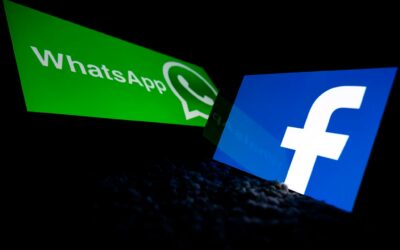Our Blog
Ut porttitor imperdiet hendrerit. Suspendisse pulvinar lacus nec sollicitudin finibus ligula quam.
Boston Dynamics robot dog will get an arm on its back so it can open doors and grab things
Boston Dynamics has said that its robot dog, Spot, will soon be upgraded with an additional robot arm.Spot, which recently became commercially available for $74,500 (approximately £60,000), has apparently been purchased 260 times according to the company’s CEO Rob Playter.The arm is set to become available early in 2021, with six degrees of freedom and the capability to open doors and pick up objects.“Like the base robot,” Boston Dynamics says, “there’s much more to the arm than just hardware. It will ship with an intuitive UI, and be equipped to operate through both telemanipulation and supervised autonomous behaviours via the tablet.”The robotic limb had been featured in videos since 2018. In June this year, the company said that it would be coming “in a few months” according to the company founder Marc Raibert.“The next thing on the future Spot is that we’re going to make it available with a robot arm in a few months,” Raibert said at the time. “We have prototypes working, but we don’t have them available as a product yet.”“Once you have an arm on a robot, it becomes a mobile manipulation system. It really opens up just vast horizons on things robots can do. I believe that the mobility of the robot will contribute to the dexterity of the robot in ways that we just don’t get with current fixed factory automation.”The arm will be accessible to developers through an API, with features like grasping and dragging objects being offered as part of a beta.As well as a robot arm, Boston Dynamics also offers a $1,650 extra charger for Spot, as well as $34,570 lidar and camera system.However, the company has stressed that the metal hound is only designed for use in industry or commercial applications, and is not certified for use in the home.Boston Dynamics instead sees Spot as being used on oil rigs or places where radiation is present and humans cannot safely travel in.That includes Pick, an item-grabbing machine, and a new version of its bird-like Handle robot which can move items into shipping containers or trucks.
PS5 will have Apple TV, Netflix, Spotify, Twitch and more on release date – but not Amazon, HBO, Hulu or others
Sony has revealed the apps and streaming services that will be available on the PlayStation 5 when it launches next month.Noting that consoles are no longer just gaming platforms but that “movies, TV shows, music, and gaming livestreams only add to the PlayStation experience”, it confirmed that a range of different apps will be ready for the new console.The PS5 arrives on 12 November in a limited number of countries including the US. It will then launch everywhere else a week later on 19 November.When it does arrive, it will have Apple TV+, Disney+, Netflix, Spotify, Twitch and YouTube.As with the PS4, Spotify will work differently to the other streaming platforms, allowing it to be used as background music while playing through games.Apple TV+ is not yet available on the PlayStation 4, but it will be coming to that console too.Sony revealed the PS5’s menus in a video posted last week. That revealed that there will be a devoted section for entertainment apps, which Sony said had been done to make it “and easy to switch between gaming and entertainment content whenever you want”.It also said that the PS5 will have “a new Control Center that makes controlling your music easier than ever before, so you can quickly switch between channels, skip, and pause your music”.Sony confirmed that more apps would come eventually. They included “Amazon Prime Video, MyCanal, Hulu, Peacock, and more”, it said, but it did not give a timeframe for their release.As part of the same announcement, Sony confirmed that the four buttons on the bottom of the media remote will be reserved for quick access to streaming services: Disney+, Netflix, Spotify and YouTube. Though the remote had already been revealed, official pictures left those four lower buttons blank.As well as allowing people to control their consoles while watching videos or other entertainment, the console will be able to control compatible TVs, Sony said.
Elon Musk's SpaceX aborts launch with minutes to spare to 're-examine whole rocket'
SpaceX has aborted the launch of the latest batch of its Starlink internet satellites.The failed launch from Cape Canaveral in Florida comes just four days after the 14th batch of Starlink satellites were successfully deployed to low-Earth orbit.Such a rapid launch schedule is made possible by SpaceX’s pioneering Falco9 9 rockets, which are capable of landing after lift-off so they can be reused at a later date.“Standing down from today’s launch of Starlink to allow additional time for mission assurance work,” SpaceX tweeted.“Will announce next launch opportunity once confirmed on the Range.”SpaceX CEO Elon Musk added: “Just a small-seeming issue with loss of upper stage camera. Probably nothing serious, but standing down to re-examine whole vehicle just in case.”Thursday’s launch of 60 satellites would have grown the Starlink constellation to over 850.The network is already rolling out to a limited number of users in Canada and the United States, with plans to eventually deliver high-speed broadband to 99 per cent of the populated world.Early testers include emergency service workers in Washington State, who hooked up a satellite to connect to the network in order to provide a WiFi hub to residents in the town of Malden, which had been mostly destroyed by wildfires in September.
Twitter says ‘no evidence’ of Trump hack after president accused of using ‘Maga2020!’ password
Twitter says it has “no evidence” that Donald Trump’s account was hacked, after an ethical hacker claimed to have broken into it using just the password “maga2020!”.Juddson Deere, the White House deputy press secretary, also told The Independent that the claims by the hacker are “absolutely not true but we don’t comment on security procedures around the President’s social media accounts.”Victor Gevers, a security expert, claimed to have had access to the president’s direct messages, could change his profile, and tweet, according to de Volkskrant, which reported that it had seen screenshots from the president’s account.It only took the hacker five attempts to guess the president’s password, he claimed.Gevers apparently alerted Mr Trump and US governmental services about the breach, and was then contacted by the Secret Service.Mr Trump did not reply to an email sent to him by Gevers advising him to choose a more secure password, he said.The president’s account has reportedly been made more secure.According to Gerver’s claims, the account had previously not had two-step authentication activated for the account, which requires that a login be verified via access to another personal device such as a physical security key or authenticator app on another computer.Gevers was one of three hackers who accessed president Trump’s account in 2016, when the accounts password was reportedly “yourefired”.“That we would succeed in doing it again so soon, was not planned,” he told de Volkskrant.“I expected to be blocked after four failed attempts. Or at least would be asked to provide additional information.”The hacker was apparently shocked that it was possible for him to so easily access the president’s account.“Why is it possible for someone from a different time zone to log into such an important account? Why doesn’t Twitter demand better passwords? If I can access his account, then foreign nations can do so as well, right? Why aren’t the persons who are supposed to protect the president informed when someone reports that his account is unsafe?” he said.Contacted by The Independent, Mr Gevers refused to provide firm evidence that he had access to the account, such as emails with the Secret Service or screenshots that could only be taken when logged in as Mr Trump. “We’ve seen no evidence to corroborate this claim, including from the article published in the Netherlands today”, Twitter said in a statement. “We proactively implemented account security measures for a designated group of high-profile, election-related Twitter accounts in the United States, including federal branches of government.”Twitter would not specify what measures have been taken to secure such accounts.High-profile Twitter accounts have been compromised in the past.Scammers were able to take control of users’ accounts and ask for users to send $1,000 to a Bitcoin account with the promise that their deposit would be doubled in return.Mr Trump recently claimed that “nobody gets hacked” at a campaign event in Tucson, Arizona.”Nobody gets hacked. To get hacked you need somebody with 197 IQ and he needs about 15 percent of your password,” Mr. Trump said.Hackers can get credentials via keyloggers (tools that secretly record every key you press), phishing (a method of tricking you into giving up your personal information), and third-party data breaches.
WhatsApp adds major update to let businesses speak to users through chats
WhatsApp has added new business features intended to allow companies to chat with people as they do with friends.The tools allow businesses to more easily set themselves up as special users on the app, which then means they can open conversations that will sit alongside more traditional WhatsApp chats.But the company did stress that the business features will always requires users to choose to use them, amid fears that the inclusion of more companies could undermine the personal and private nature of WhatsApp.WhatsApp – and its owner Facebook – said the move comes as more people move to messaging companies they are buying from or dealing with, and moving away from the usual ways of getting in touch with businesses.“Many of the old ways in which people and businesses communicate are not working,” the company wrote in a blog post. “While businesses spend billions of dollars annually managing phone calls, e-mails, and SMS, people do not want to wait on hold, get passed from person to person, or wonder if their messages were received.”Instead, WhatsApp hopes it can shift users towards talking through the app, but it noted that “there is much more we need to build” before people feel confident to message businesses to get help or make purchases.The three major changes introduced in the new update are all intended to support that, and encourage more companies to conduct their work through WhatsApp and Facebook.The first of them is new shopping tools that allow users to make purchases from within a chat. Stores can host a devoted page to show the products they have for sale, and customers can then buy those products in the same way as sending a message, as well as discussing any questions through the same means.The second is the introduction of “Facebook Hosting Services”. That allows small and medium businesses to have their tools – such as products, inventory and customer service software – hosted by Facebook itself, rather than having to integrate WhatsApp’s technology with their own systems.That will mean that Facebook might be able to gather data about what customers are buying and discussing within the app. Some of the information generated through the integration with Facebook will be used for ad targeting, WhatsApp noted.The third is the introduction of business sales. While WhatsApp committed that there will be no charge for the features the app is best known for – such as text messages, and video and voice calling – it will start to charge businesses for its services.The new tools will roll out “in the months to come”, WhatsApp said.
Humans and artificial intelligence ‘see’ objects in same way, researchers discover
Researchers have discovered a “spooky” similarity between how human brains and artificial intelligence computers see three-dimensional objects.The discovery is a significant step towards better understanding how to replicate human vision with AI, said scientists at Johns Hopkins University who made the breakthrough.Natural and artificial neurons registered nearly identical responses when processing 3D shape fragments, despite the artificial neurons being trained using images on two-dimensional photographs. The AlexNet AI network unexpectedly responded to the images in the same way as neurons that are found within an area of the human brain called V4, which is the first stage in the brain’s object vision pathway.“I was surprised to see strong, clear signals for 3D shape as early as V4,” said Ed Connor, a neuroscience professor at the Zanvyl Krieger Mind/Brain Institute at Johns Hopkins University.“But I never would have guessed in a million years that you would see the same thing happening in AlexNet, which is only trained to translate 2D photographs into object labels.”Professor Connor described a “spooky correspondence” between image response patterns in natural and artificial neurons, especially given that one is a product of thousands of years of evolution and lifetime learning, and the other is designed by computer scientists.“Artificial networks are the most promising current models for understanding the brain,” Professor Connor said. “Conversely, the brain is the best source of strategies for bringing artificial intelligence closer to natural intelligence.”A research paper detailing the discovery was published in the scientific journal Current Biology on Thursday.
30,000+
Avid Subscribers






